Make no mistake about it; Mike Flanagan’s departure for Prime Video is going to leave a gaping hole in Netflix’s roster of acclaimed in-house episodic content, and The Fall of the House of Usher might just be the horror auteur’s finest achievement. It’s a fitting way to bow out, and one that’ll leave subscribers enthralled from beginning to end when it premieres in its entirety on Oct. 12.
Despite being his fifth series for the streaming service – never mind one that ropes in literally dozens of his regular collaborators for roles both big and small – the modern-day interpretation of Edgar Allan Poe’s titular story and several more besides is an entirely unique beast, one that’s dripping in dread both figurative and existential, all shot through with a rich vein of Gothic terror, jump scares, and astounding character work from a sprawling ensemble firing on all cylinders from the first episode to its very last.
The comparisons to Succession are inevitable given that both revolve around the slowly-crumbling dynasty of a multi-billion dollar patriarch, complete with corporate machinations and sibling rivalries that have fostered contempt and resentment for decades over who holds the genuine claim to step up and fill the mantle and claim a slowly-shattering empire as their birthright. In this case, Bruce Greenwood’s Roderick Usher is at the head of the table, slowly slipping into madness as the bodies continue piling up.
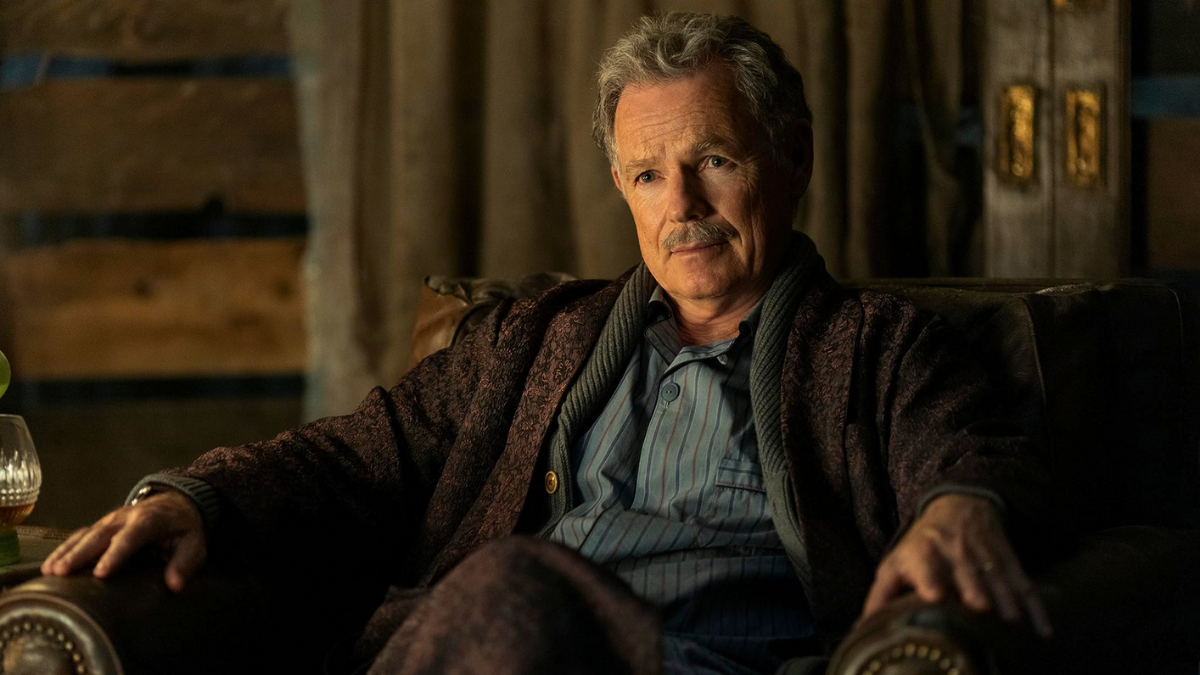
Even though he’s a Flanagan fixture, Greenwood is so undeniably magnetic in what’s ostensibly the lead role that it’s very easy to forget Frank Langella was earmarked for the part before he was fired for misconduct midway through production. The veteran would have given an entirely different performance, of that there’s no doubt, but his late in the game replacement absolutely knocks it clear out of the park.
Of course, top-tier acting has become par for the course when it comes to Flanagan’s Netflix exclusives, so it’s not a surprise to unequivocally state that’s also the case here. Familiar with his methods by now, virtually every significant player in The Fall of the House of Usher is portrayed by somebody that’s worked with him at least once before, and it’s to everyone’s testament that over-familiarity never sets in despite seeing the same person working with the same filmmaker in what’s essentially the same genre for the same streaming service.
Haunted by traumatic visions of the dead, Roderick sits in his abandoned and hollowed-out childhood home with Carl Lumbly’s investigator Auguste Dupin, which serves as a framing device that jumps back, forwards, and occasionally sideways in time to fill in the gaps in the Usher legacy, with each individual installment primarily focusing on the what, when, where, and why of how the latest piece of the familial puzzle is taken off the board.
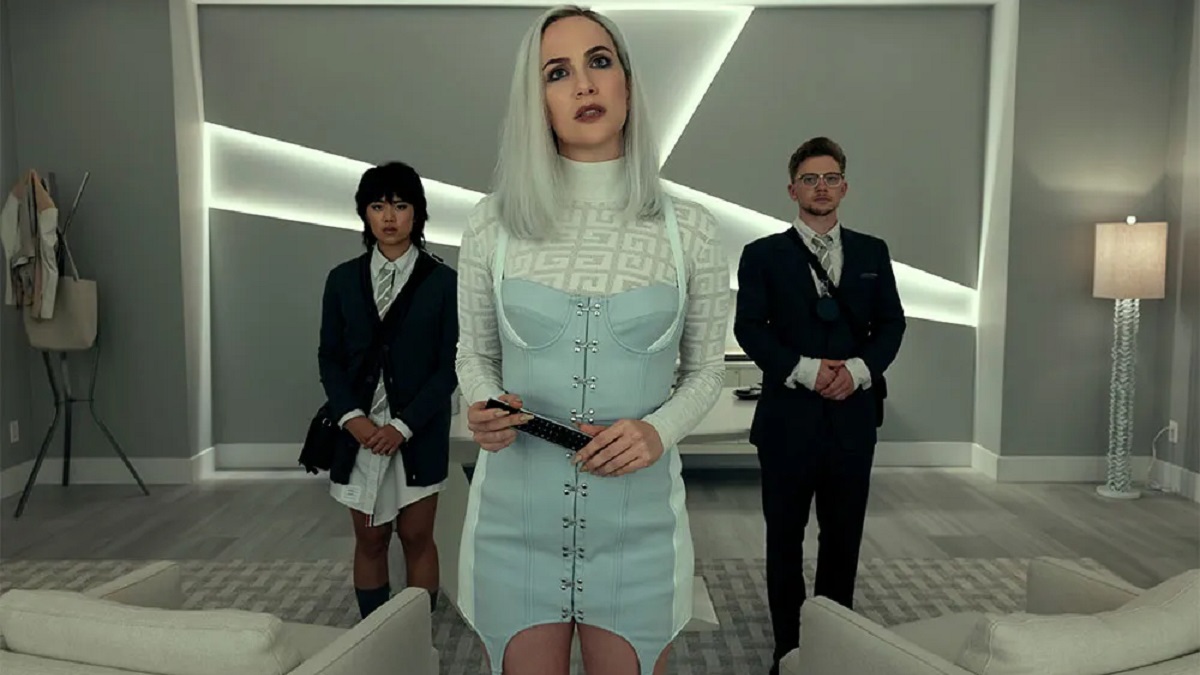
Although The Fall of the House of Usher takes its title from a singular Poe story, it folds in adaptations of several iconic tales including The Masque of the Red Death, The Tell-Tale Heart, and The Raven with which to tell the overarching story of its titular clan, but it seamlessly flows together to create a tightly-knitted narrative tapestry that’s destined to win over both scholars and subscribers alike.
There’s also an overriding sense of unpredictability; it’s made perfectly clear in the opening moments that all of the Usher kids – Henry Thomas’ Frederick, Samantha Sloyan’s Tamerlane, Rahul Kohli’s Napoleon, Sauriyan Sapkota’s Prospero, Kate Siegel’s Camille L’Espanaye, and T’Nia Miller’s Victorine LaFourcade – are all going to die under horrible circumstances, but it’s impossible to predict how until their own story unfolds.
Will it be an orgy? A misguided urination? Laboratory experiments gone wrong? A rogue cat? An errant sex worker? Or something even more unexpected? It sounds ridiculous when you list them like that, but as always tends to be the case with Flanagan, it’s all in the construction and execution, with multiple standalone stories all slotting neatly into the overriding themes of despair, desperation, greed, and an unquenchable lust for power, all while Mary McDonnell’s twin sister Madeline (with Zach Gilford and Zach Gilford doing stellar jobs as the siblings in flashbacks) and Mark Hammil’s shady right-hand man Arthur Pym – also known as the “Pym Reaper” – operate as the devils on each of Roderick’s shoulders.
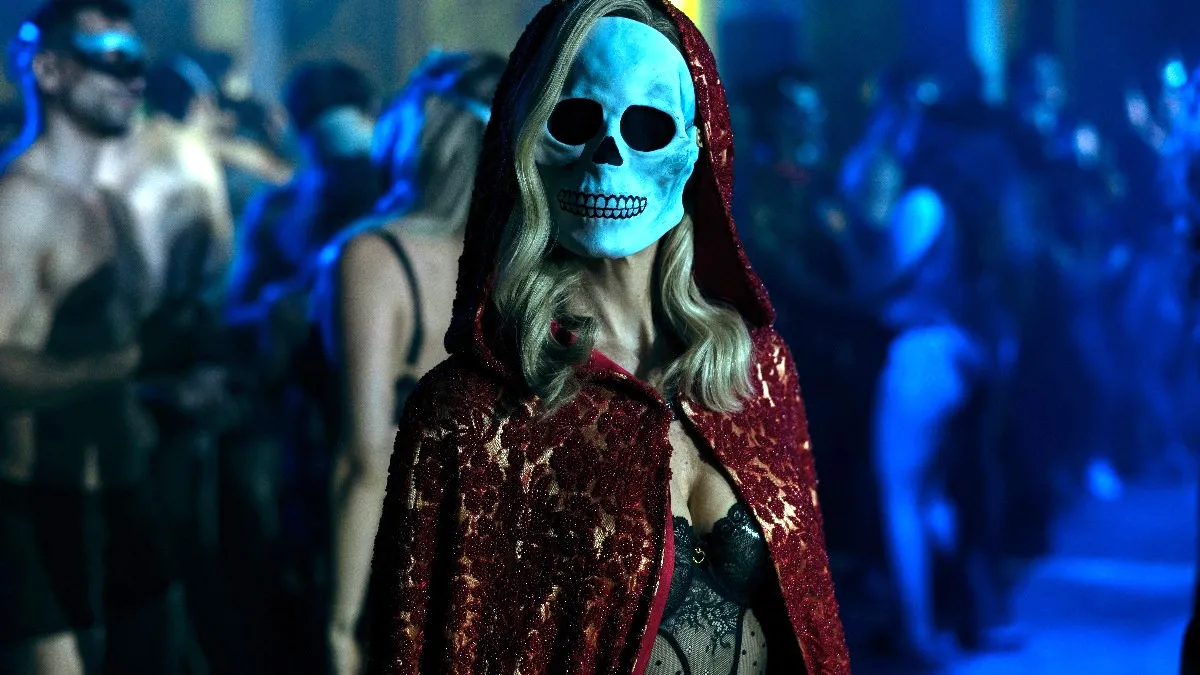
The real MVP might just be Carla Gugino as the enigmatic Verna, though, who sidles into The Fall of the House of Usher at various points, bringing an ethereal presence and manipulative charm to a complex and complicated figure that soon becomes a focal point for reasons that best remain unspoiled. As Roderick’s armor begins to fall apart piece by piece, revealing him to be far from the cold-blooded tyrant he’d love nothing more than to have the world believe he is, revelations bubble to the surface that re-contextualize everything that came before.
Admittedly, trying to balance its multiple tones and influences doesn’t result in an entirely smooth ride, which should be expected considering that The Fall of the House of Usher is a family drama, murder mystery, procedural, legal thriller, takedown of unscrupulous corporations, exploration of gender dynamics in the boardroom and business, Gothic horror, adaptation of a seminal writer, and time-jumping exploration of what makes its power players tick all at once. At times, it can feel bloated and hollow at the same time, an oxymoron that’s still one of the very few flaws to be found within.
As a whole, The Fall of the House of Usher is monumentally ambitious and a resounding success by and large. Opinion may vary on whether or not it really is Flanagan’s episodic magnum opus, but one thing that can’t be denied by the time the credits come up on the eighth and final entry is that Netflix’s loss is about to become Prime Video’s gain.

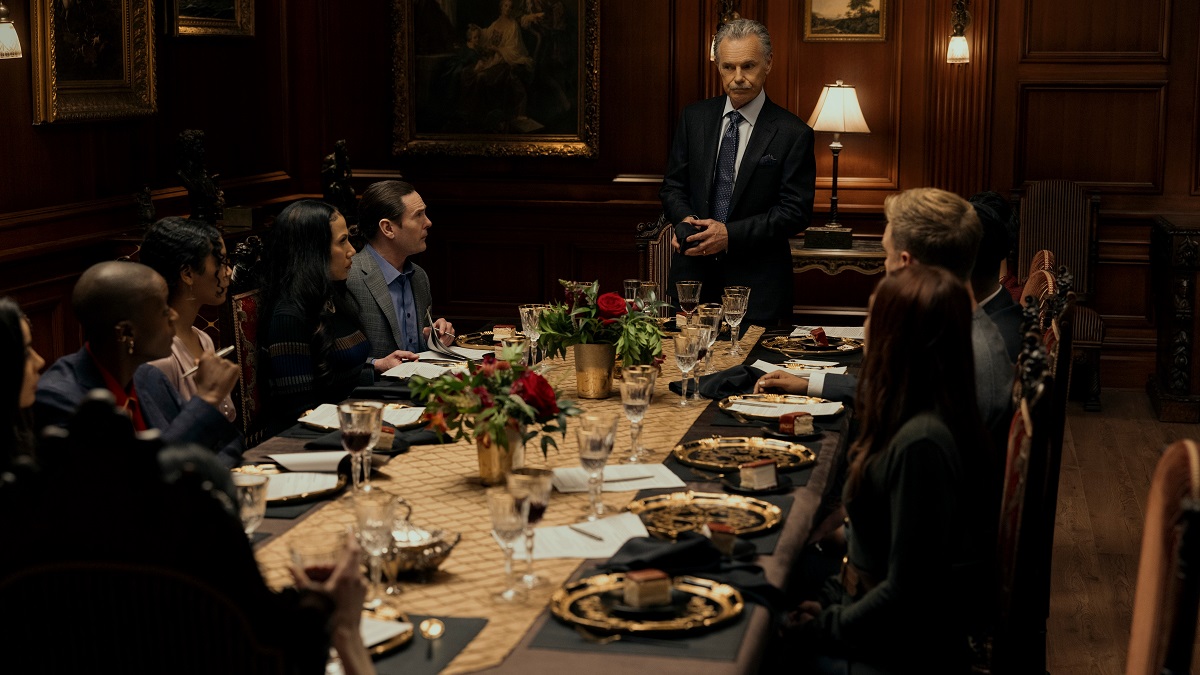
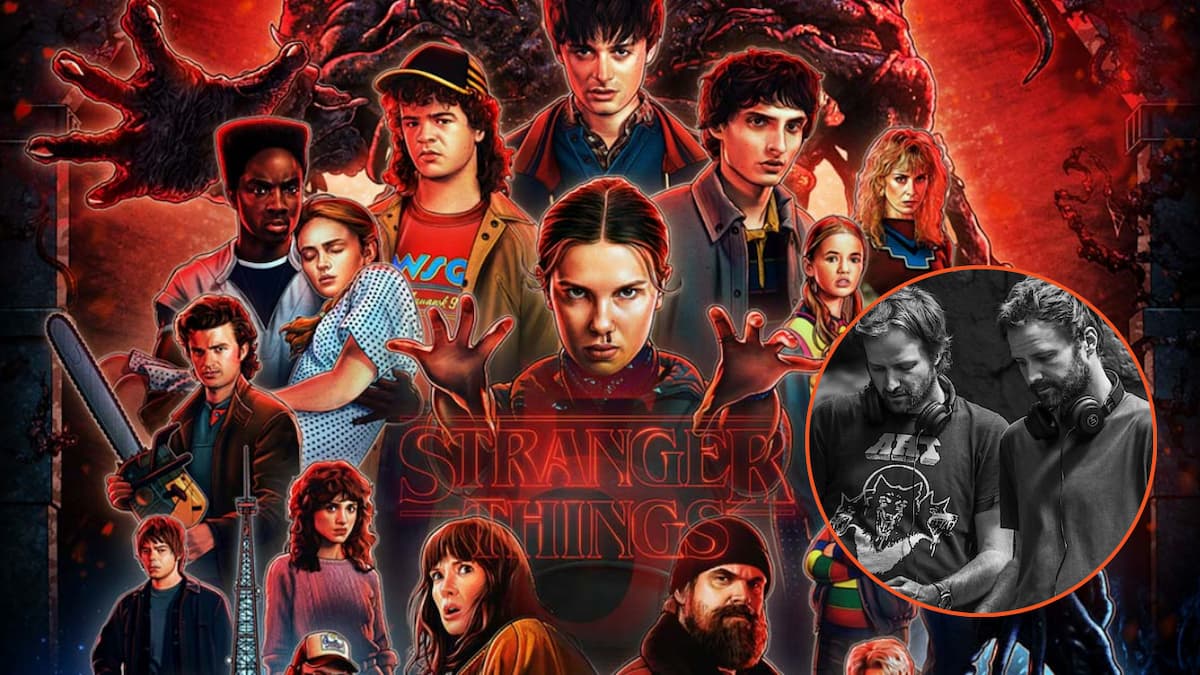

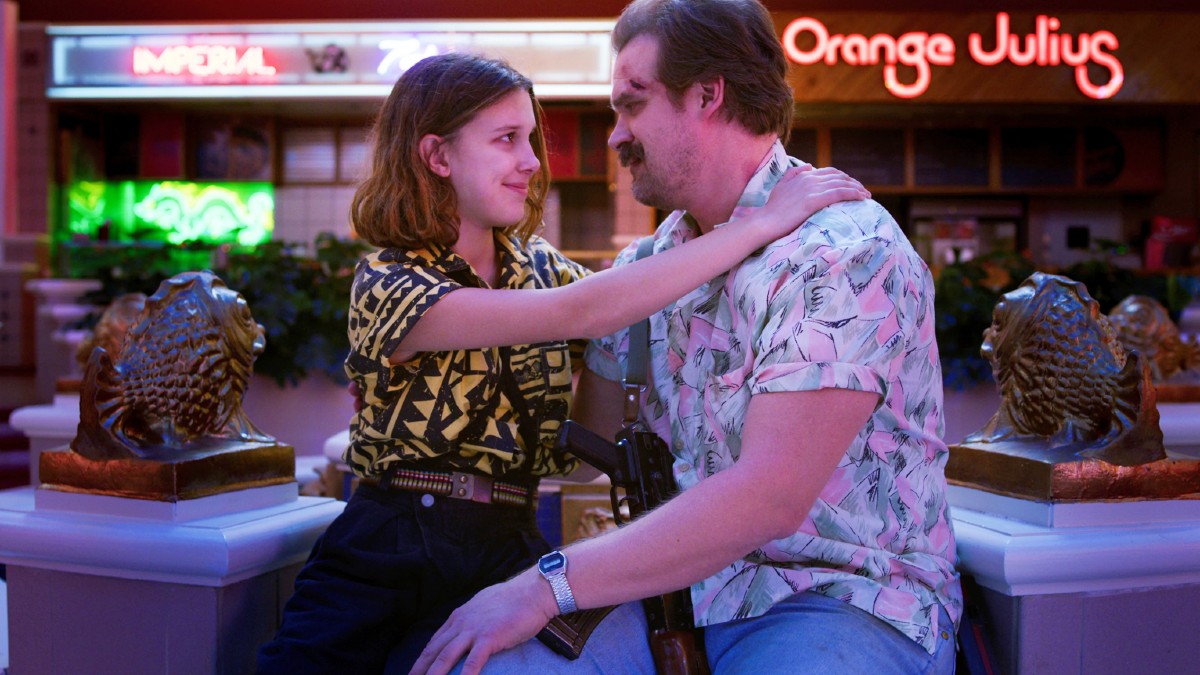
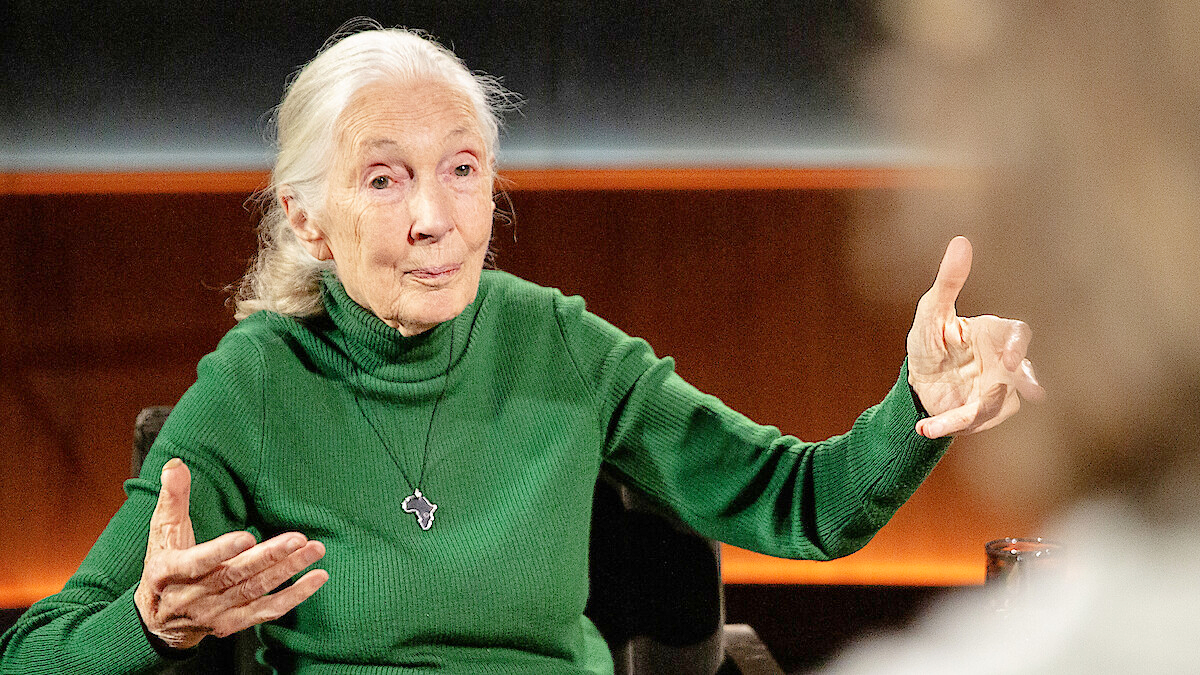

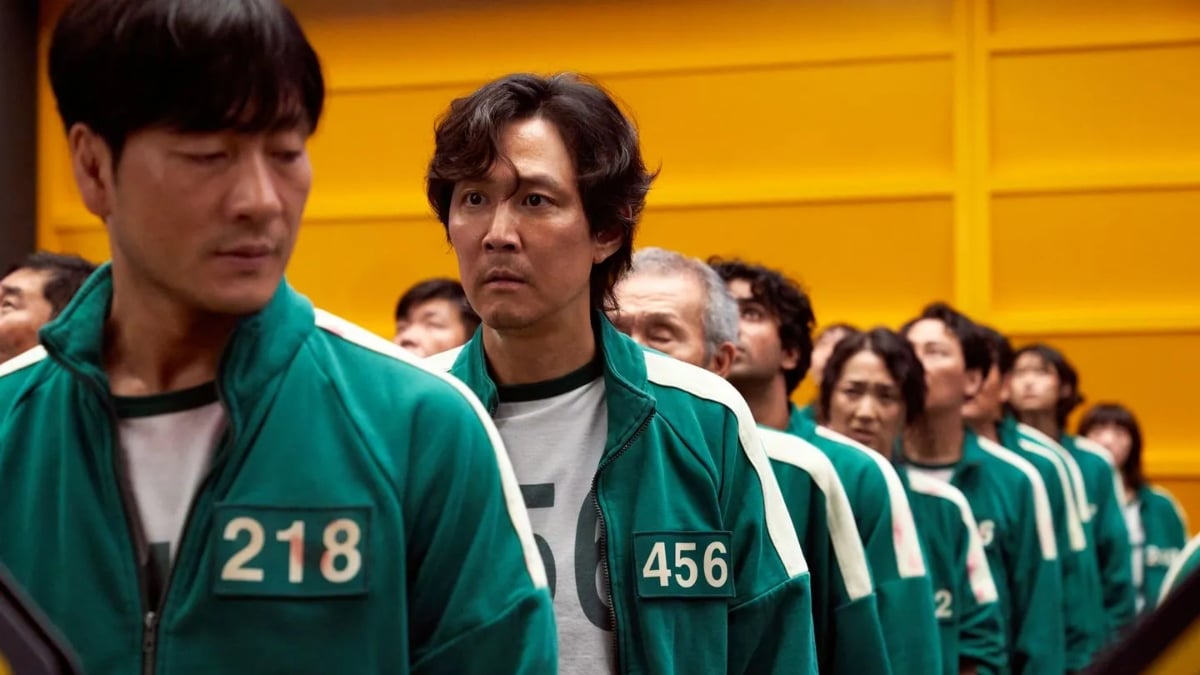



Published: Oct 2, 2023 04:16 am